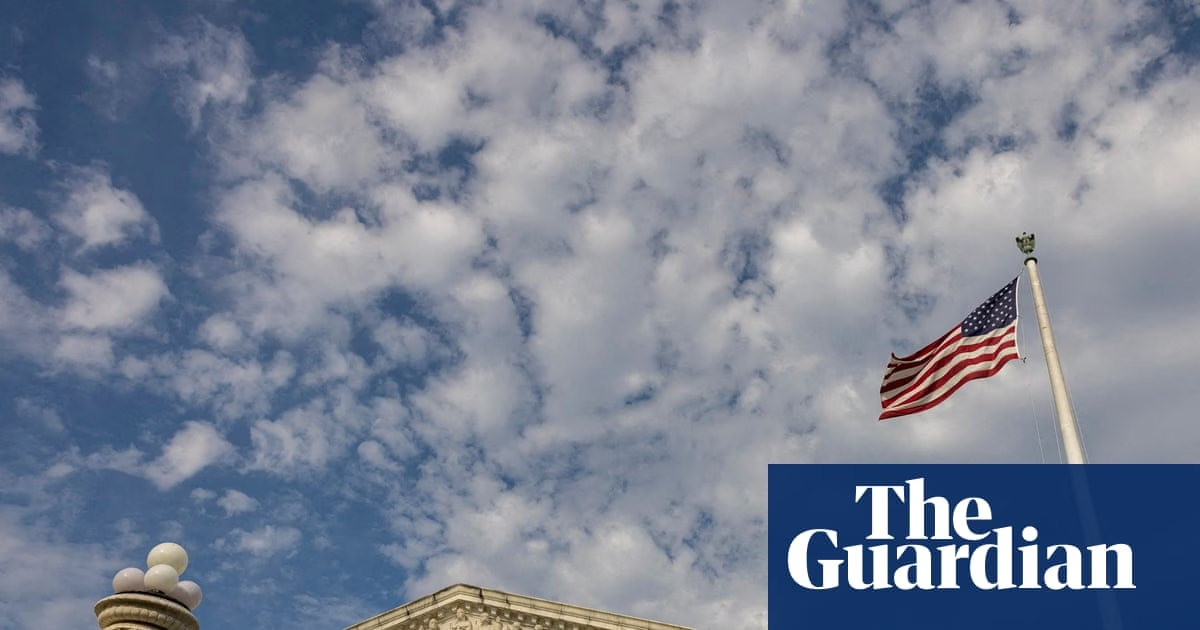<
div>
The Trump administration is entitled to cut back hundreds of millions of dollars in research funding, in line with its efforts to reduce federal diversity, equity, and inclusion (DEI) initiatives, after a ruling by the Supreme Court on Thursday.
The decision of the divided court has overturned a preliminary injunction that had prevented $783 million worth of reductions by the National Institutes of Health (NIH) as part of align with Donald Trump’s agenda.
By a 5-4 margin, Chief Justice John Roberts, the court’s liberal justices, and others voted not to permit the reductions. Nevertheless, an anti-DEI guideline from the Trump administration for future funding was kept blocked, thanks to a crucial vote from Justice Amy Coney Barrett.
<link rel=”stylesheet” href=”//cdn.guimaga.com/assets/199/125904/ href=”https://www.theguardian.com/”/>
The ruling is a win for the Trump administration, allowing it to continue moving forward with the cancellation of hundreds of grants while litigation on the matter continues. The plaintiffs, including several states and health advocacy groups, argued that these cuts will result in “immeasurable losses in public health and human life”.
The Department of Justice maintains that funding choices should not be questioned by the judiciary, and the promotion of DEI policies can “disguise insidious race-based prejudice”.
Although this lawsuit concerns only a fraction of the estimated $12 billion in NIH research projects that have been slashed, the Trump administration’s emergency appeal also questioned nearly two dozen other instances where judges blocked its funding cuts.
Solicitor General D. John Sauer argued that these cases should not be decided by judges under an earlier Supreme Court ruling that permitted the cutting of teacher-training program funds, which was also linked to DEI. He suggested these matters should be directed to federal claims court instead.
Five conservative justices sided with him. Justice Neil Gorsuch authored a brief opinion criticizing lower court judges for not adhering to previous Supreme Court orders. “All of these interventions should have been unnecessary,” Gorsuch wrote.
The plaintiffs, consisting of 16 Democratic state attorneys general and public health advocacy organizations, had argued without success that research grants and teaching contracts are fundamentally different and cannot go to a claims court.
They argued that de-funding studies halfway through halts research, destroys data already collected, and ultimately harms the nation’s potential for scientific breakthroughs by disrupting the work of scientists in the middle of their careers.
Justice Ketanji Brown Jackson filed a lengthy dissent critiquing both the outcome and her colleagues’ willingness to keep granting the administration victories in emergency appeals.
“This is Calvinball jurisprudence with a twist. Calvinball has only one rule: there are no fixed rules. We seem to have two: one, and this administration always wins,” she wrote, referring to the fictional game in the comic strip Calvin and Hobbes.
In June, US District Judge William Young in Massachusetts had ruled that the cancellations were arbitrary and discriminatory. “I’ve never seen government race-based prejudice like this,” Young, an appointee of Republican President Ronald Reagan, stated at a hearing.
He later added: “Are we shameless?”
An appeals court had upheld Young’s ruling.








